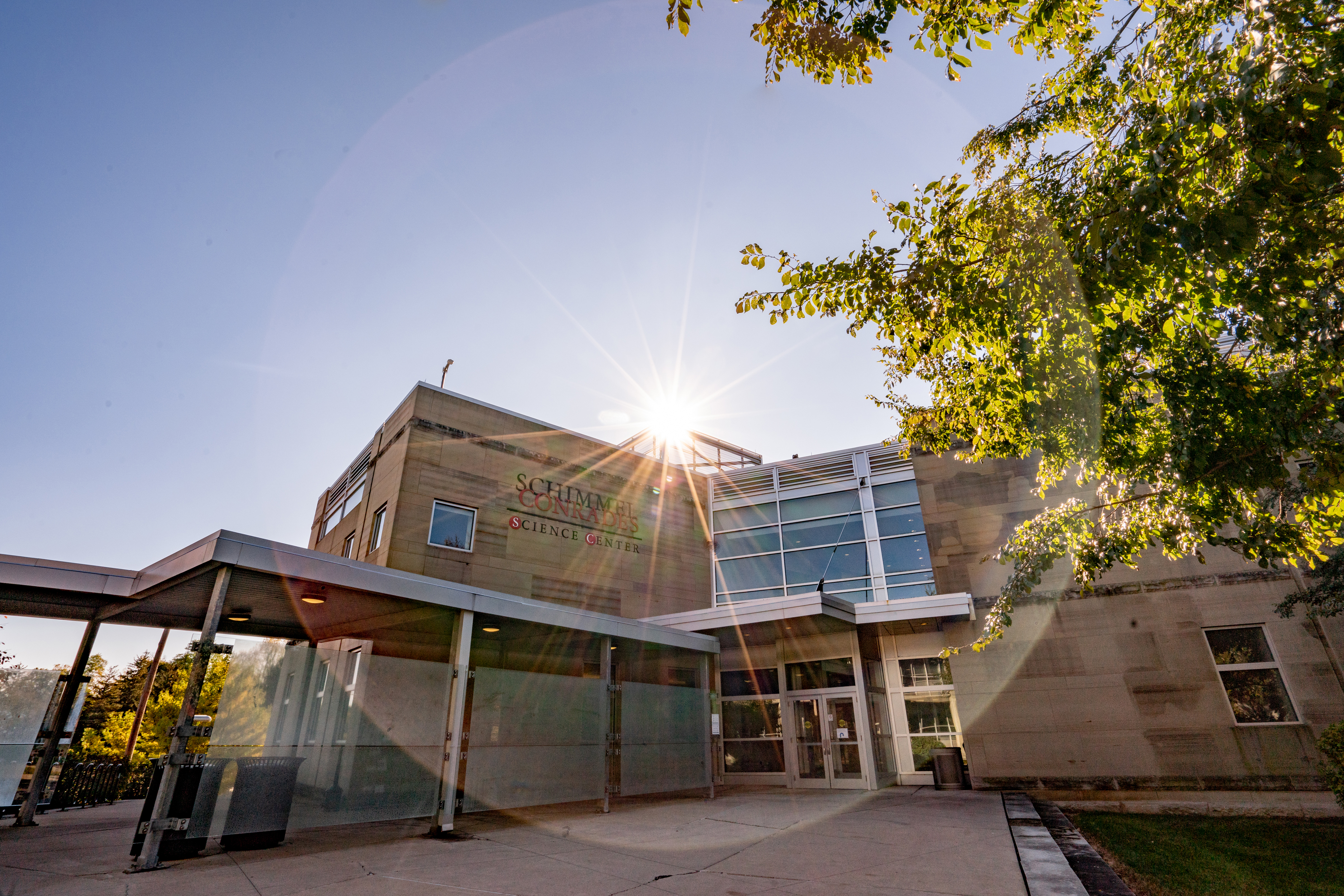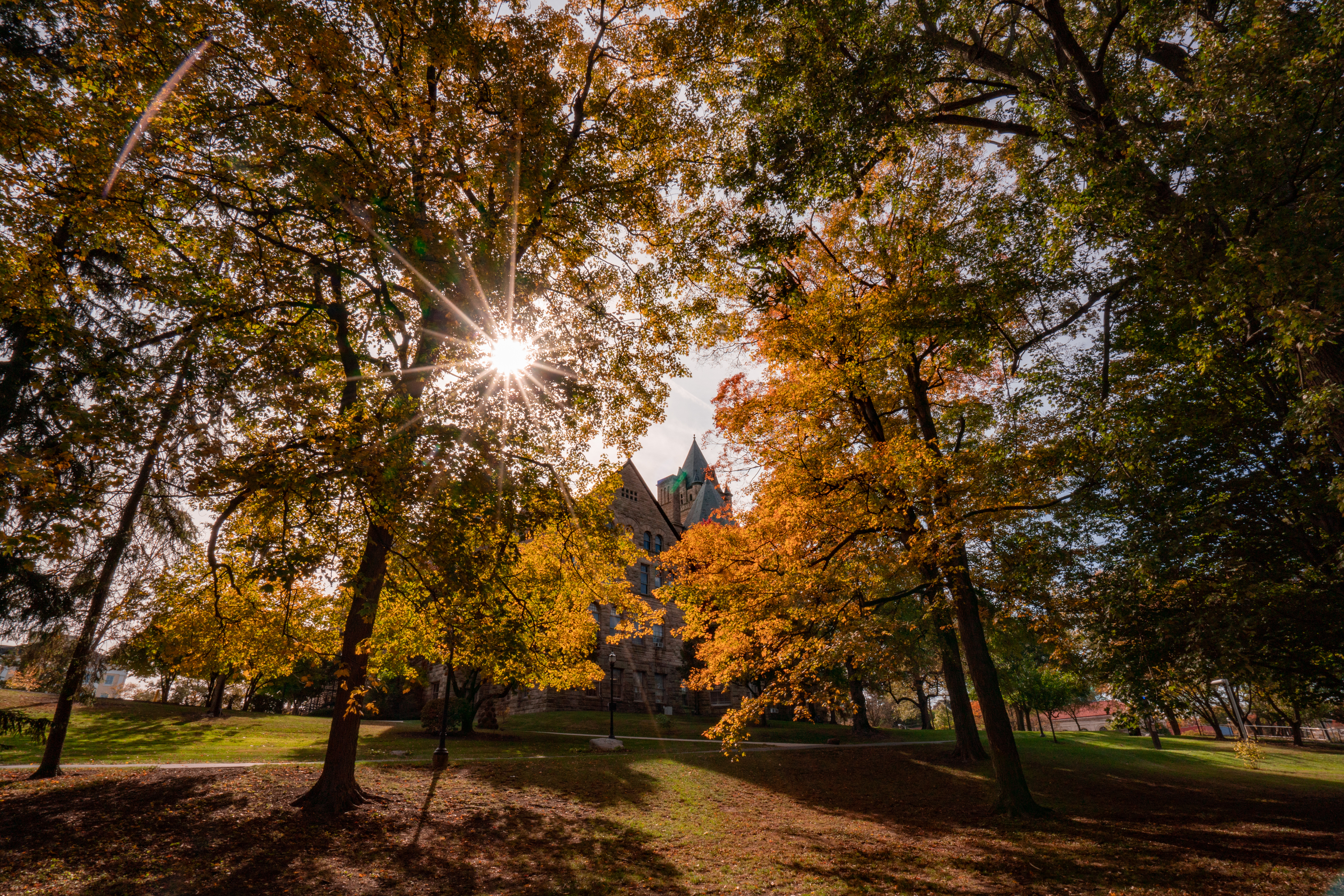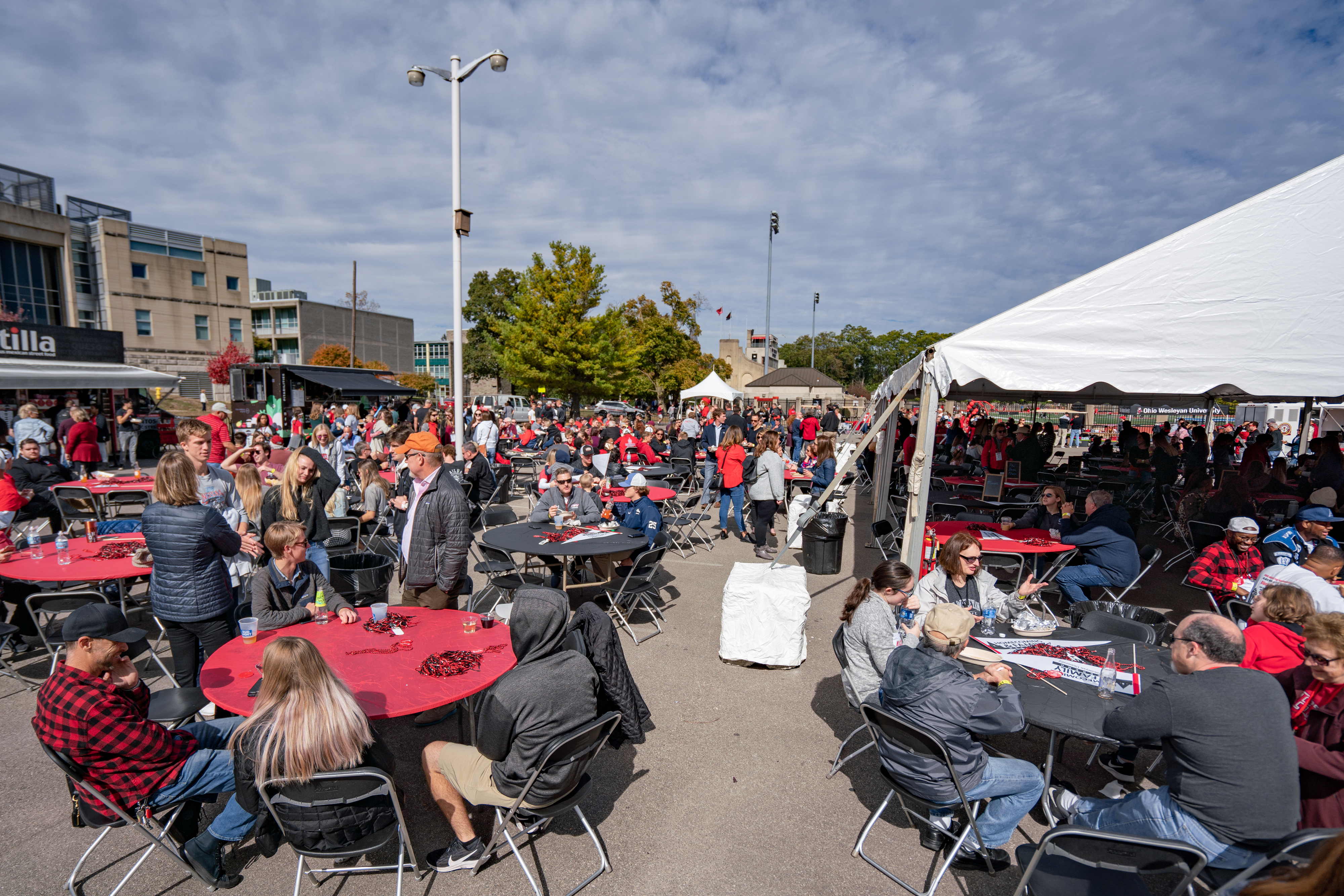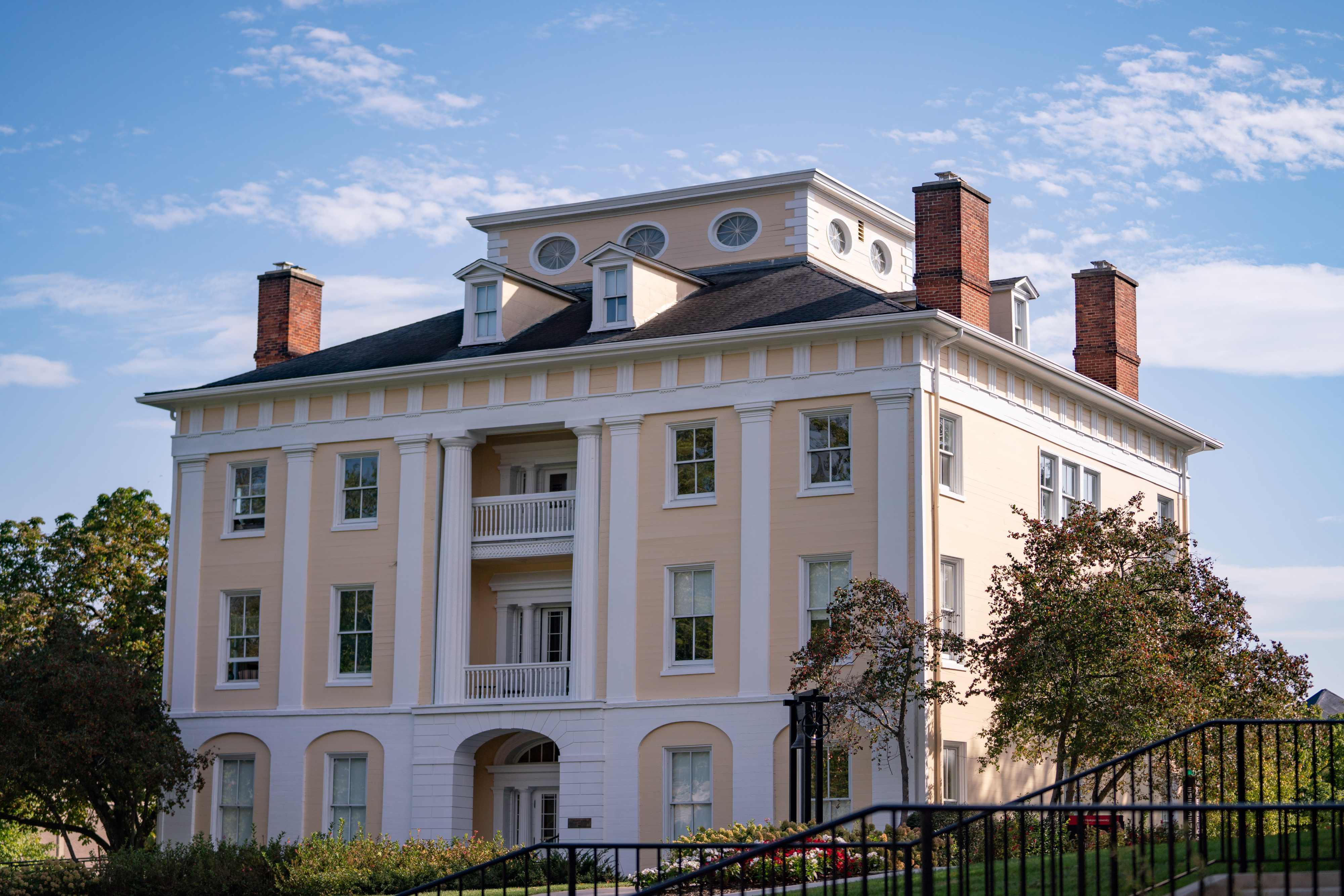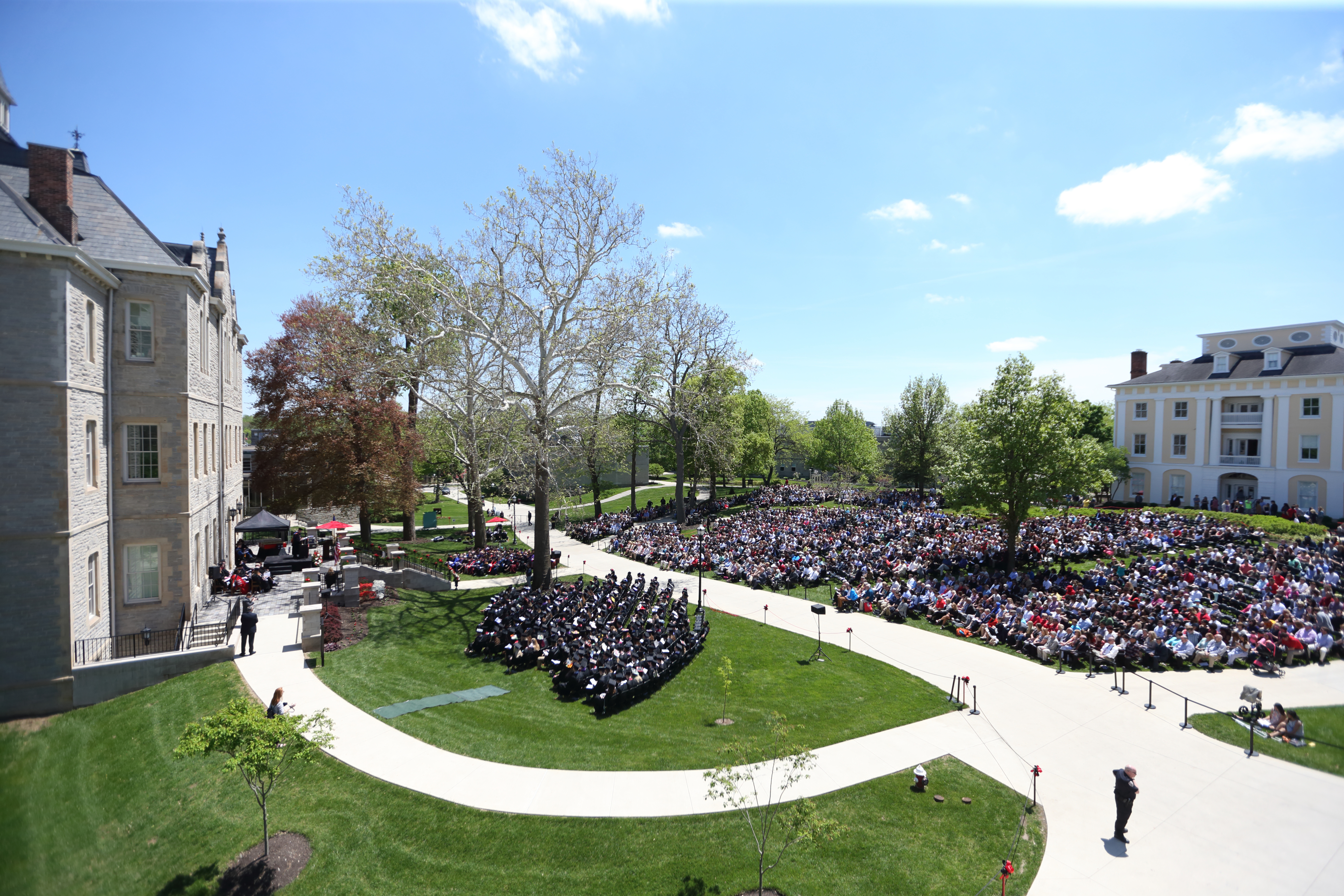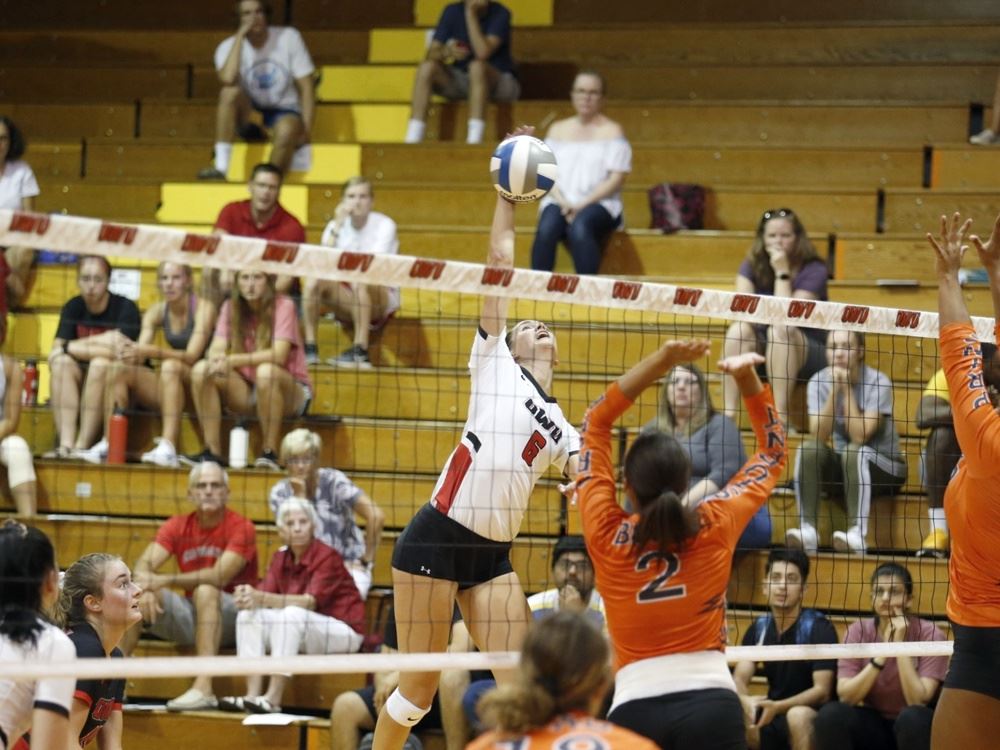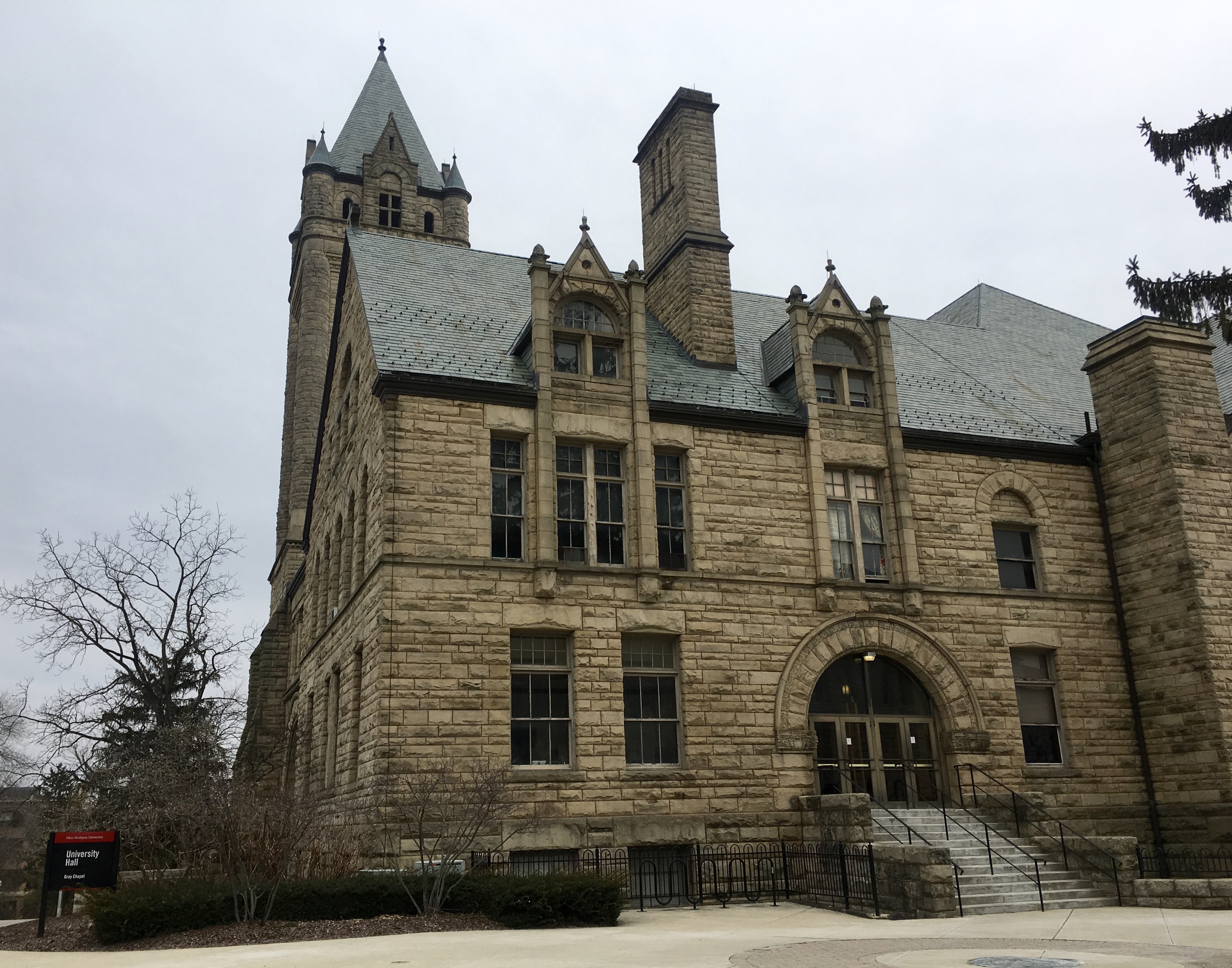By Azmeh Talha
Transcript Reporter
Arts and Entertainment Editor
aatalha@owu.edu
Ohio Wesleyan University (OWU) Pakistani Alumna returned for the Sagan National Colloquium to talk about the United States attempts to cut Pakistan’s resources off to decrease the number of militant groups in the country.
Sahar Khan (’06) discussed the bilateral relationship between The United States and Pakistan. She began her lecture by talking about President Donald Trump’s tweet about Pakistan in 2018: “The United States has foolishly given Pakistan more than 33 billion dollars in aid over the last 15 years, and they have given us nothing but lies & deceit, thinking of our leaders as fools. They give safe haven to the terrorists we hunt in Afghanistan, with little help. No more!”
The Pakistani government responded by saying that the Trump administration was undermining all the things Pakistan has done for the U.S. and Afghanistan.
During her time at OWU, Sahar Khan (’06) was a student of Sean Kay, the director of the international studies program. In his introduction, Kay said Khan majored in international studies, politics and government and economics.
After graduation, Khan got her master’s degree in public policy from the University of Chicago. From there, she got her Ph.D. from The University of California Irvine. During this time, she was an associate editor of Washington Quarterly, a policy journal. Currently, Khan is working at the CATO Institute as an adjunct scholar.
“It is Pakistan who suffers from terrorism and the U.S. tends to overlook all of those safe havens that exist in Afghanistan that attack Pakistani citizens themselves,” Khan said.
In her lecture, Khan talked about Pakistan’s current Prime Minister, Imran Khan. They are not related. The Prime Minister Khan of Pakistan openly said that militant groups do not belong in Pakistan and in fact, Pakistan has gone after militant groups through various campaigns they have been waging since 2009.
Khan also discussed the war between the U.S. and Afghanistan. In 2015, Trump said he wanted to end this war and ensure that the U.S. does not get involved in any other unnecessary wars.
The United States, under the Trump administration has reduced the security aid to Pakistan which has reduced military financing. Foreign military financing (FMF), a grant that the U.S. gives to countries so that they can buy U.S. arms. Pakistan is no longer receiving this grant. It is now too expensive for Pakistan to buy U.S. arms.
The second major security aid cut is the Coalition Support Funds (CSF). This is a large program in which the U.S reimburses certain countries for using their military bases. In Pakistan’s case, due to U.S involvement in Afghanistan, the U.S has been using Pakistani air bases in the North Western Province. For use of this area, the U.S has been reimbursing Pakistan. However, this security aid has been cut in the past.
“Even under the Obama administration the CSF was reduced; even under George W. Bush it was reduced,” Khan said. “But under Trump it has been sort of the largest reduction in these months.”
The United States also has tried to get Pakistan on the Financial Action Taskforce (FATF), an intergovernmental agency. This agency is responsible for combatting money laundering and terrorist financing. The United States and FATF had concerns that leaders of prominent militant groups roam freely in Pakistan.
Out of these militant groups, some leaders run non-governmental organizations (NGOs). The FATF raised concerns about Pakistan not being able to control these militant-run NGOs.
The Trump administration also reduced military-to-military engagement. This occurs when there is combat between two forces in which each side has been either assigned or perceived a mission. Khan said this was considered to be a hallmark between the U.S. and Pakistan.
“This was something that was almost benign,” Khan said.
Last year the Trump administration suspended 66 Pakistani officials from the International Military Education and Training Program. This program has not been renewed, Khan said.
Khan said that one main thing that the Trump administration is hoping to do by sanctioning Pakistan and limiting security and military aid to stop sponsorship of militant groups.
Khan further questioned why Pakistan sponsors these military groups. She answered by saying the problem is the civil-military imbalance.
“The military is strong; the civilians’ side is weak. If the civilians side was strong somehow Pakistan would no longer sponsor the militant groups.” Khan said.
Like many developing countries, Pakistan has a civil-military imbalance. Pakistan has been independent for 71 years. It spent half its life under military rule through four coups. These coups led to the Pakistani military evolving into a unique organization. The Pakistani army, along with protecting the nation, also controls businesses in the country such as farms, fisheries and pharmaceutical companies.
“The Pakistani army makes cereal and cheese,” Khan said. “It’s delicious.”
The Pakistani navy owns large business conglomerates such as The Shaheen Foundation, which has an interest in real estate. It also owns the Bahria Foundation which has similar interests.
The other reason for the civil military imbalance is the United States. The root cause of this problem dates to the Cold War, Khan said.
In 1979 when the Soviet Union invaded Afghanistan, the United States and Saudi Arabia created anti-Soviet forces. These forces were militant groups called the mujahideen. Their main goal was to fight the Soviets.
“The U.S. funded the mujahideen and they used the Pakistani army to do so and the Pakistani army essentially trained these mujahideen,” Khan said.
After the cold war ended, Pakistan and Afghanistan found themselves with well trained and well-armed unemployed militants. This led to the militant groups Pakistan has today.
“Sahar is always special for me because she was also my research assistant and helped me with books that I did,” Sean Kay said.
Kay and Khan co-authored an article on how to win the war in Afghanistan in 2006. They were the first people to write about NATO and counterinsurgency, he said.
“I loved this lecture because it took years of controversy, simplified it, and used years of research to take you from knowing minimal to excited to know more,” sophomore Maddy Miller said. “You could feel the passion that Sahar has for her research and it’s so prominent that you can’t help but get excited with her.”

